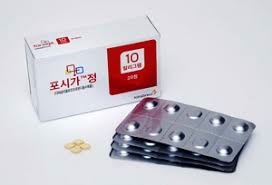AstraZeneca said it has confirmed that its diabetes drug Forxiga (ingredient: dapagliflozin) showed efficacy in heart failure, which was the first among SGLT2 (sodium-glucose cotransporter 2) inhibitors.
The company unveiled the result of the phase-3 DAPA-HF study on Forxiga in heart failure at ESC Congress 2019 in Paris, on Sunday.
In patients who were receiving the standard therapy for heart failure, researchers used Forxiga in addition to their treatment. The result showed that Forxiga reduced the composite of worsening of heart failure or cardiovascular death by 26 percent, compared to the placebo. The drug showed such result regardless of whether patients had diabetes or not.

DAPA-HF evaluated the efficacy and safety of Forxiga plus the standard therapy in 4,744 patients with heart failure and reduced ejection fraction (HFrEF) whose left ventricular ejection fraction was 40 percent or less. Half of the patients had type-2 diabetes, and the other half did not.
The primary composite outcome was time to “a worsening heart failure event” (hospitalization or equivalent event such as an urgent heart failure visit), or “cardiovascular death.”
Presenting the findings in Paris, the University of Glasgow Professor John McMurray said the researchers aimed to recruit typical HFrEF patients. From the start of the study, the researchers regarded Forxiga as a treatment for heart failure and wanted to test it in all population groups, he said.
According to AstraZeneca, the primary endpoint was 16.3 percent in the Forxiga-treated group and 21.2 percent in the placebo group during the 18.2 months of the follow-up period, meaning that Forxiga reduced the worsening of heart failure and cardiovascular death by 26 percent.
Forxiga also showed a reduction in each of the individual components of the composite endpoint. Compared to the placebo, Forxiga lowered the worsening of heart failure by 30 percent and cardiovascular death by 18 percent.
Foxiga’s safety profile remained the same as those in previous trials. Adverse events, including major hypoglycemia, lower extremity cuts, fractures, decreased fluid volume, and renal dysfunction, were generally small and did not show significant differences from the placebo group.
“The researchers confirmed Foxiga’s efficacy in heart failure, with or without diabetes. The most important finding in this study is the benefit of Forxiga in patients without diabetes,” McMurray said. “Forxiga is not only a diabetes drug but a heart failure drug.”

